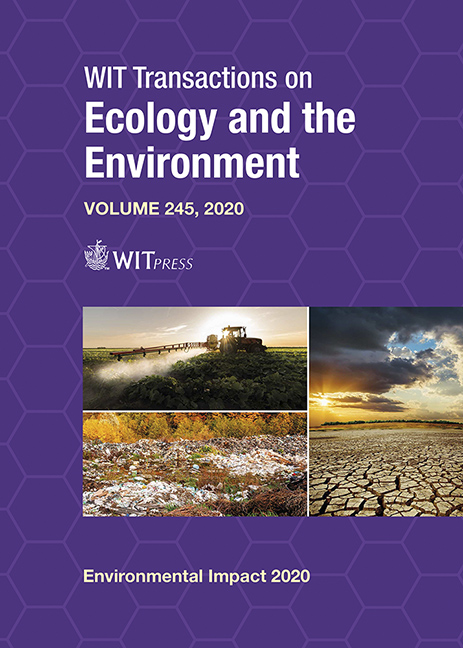ROLE OF LOCAL INSTITUTIONS IN THE TRANSITION TOWARDS SUSTAINABLE AGRICULTURE: THE CASE STUDY OF THAILAND
Price
Free (open access)
Transaction
Volume
245
Pages
9
Page Range
135 - 143
Published
2020
Paper DOI
10.2495/EID200131
Copyright
WIT Press
Author(s)
THI PHUOC LAI NGUYEN, NITCHAKAN INKONG, NICOLAS FAYSSE
Abstract
Local institutions could play an important role in enhancing social value in the community. One important social impact of local institutions is the development of social capital which can be built and developed through social interactions among social actors. Social capital enhances the connections between people and can lead to a series of behavioral outcomes. That is, social capital in a collective sense characterizes the ways in which community members interact. Social capital consists of three core elements of trust, network and reciprocity. Social networks can be built when trust is created and within the social networks, exchange and reciprocity will occur. Keeping in view the importance of local institutions, Thailand has established a large number of community organizations/associations in every village under the Thai national government program set up by the Community Organizations Development Institute (CODI) since 2000. Various projects (i.e. agricultural productivity improvement, environmental management, saving groups, welfare funds and etc.) have been funded by the government to support communities networking for poverty reduction. The social and human capital necessary for sustainable and equitable solutions to agriculture and environmental management comprise a mix of existing endowments and that which is externally facilitated. Through an empirical study in Prachinburi, Thailand, using a semi-structure, this research aims to understand what and how local institutions can play the role in the transition towards sustainable agriculture. The study focuses on examining farmers’ perceptions of sustainable agriculture and their view on how their organization could play a role in promoting sustainable farming practices.
Keywords
farmers, local institutions, perceptions, semi-structured interviews, Prachinburi





